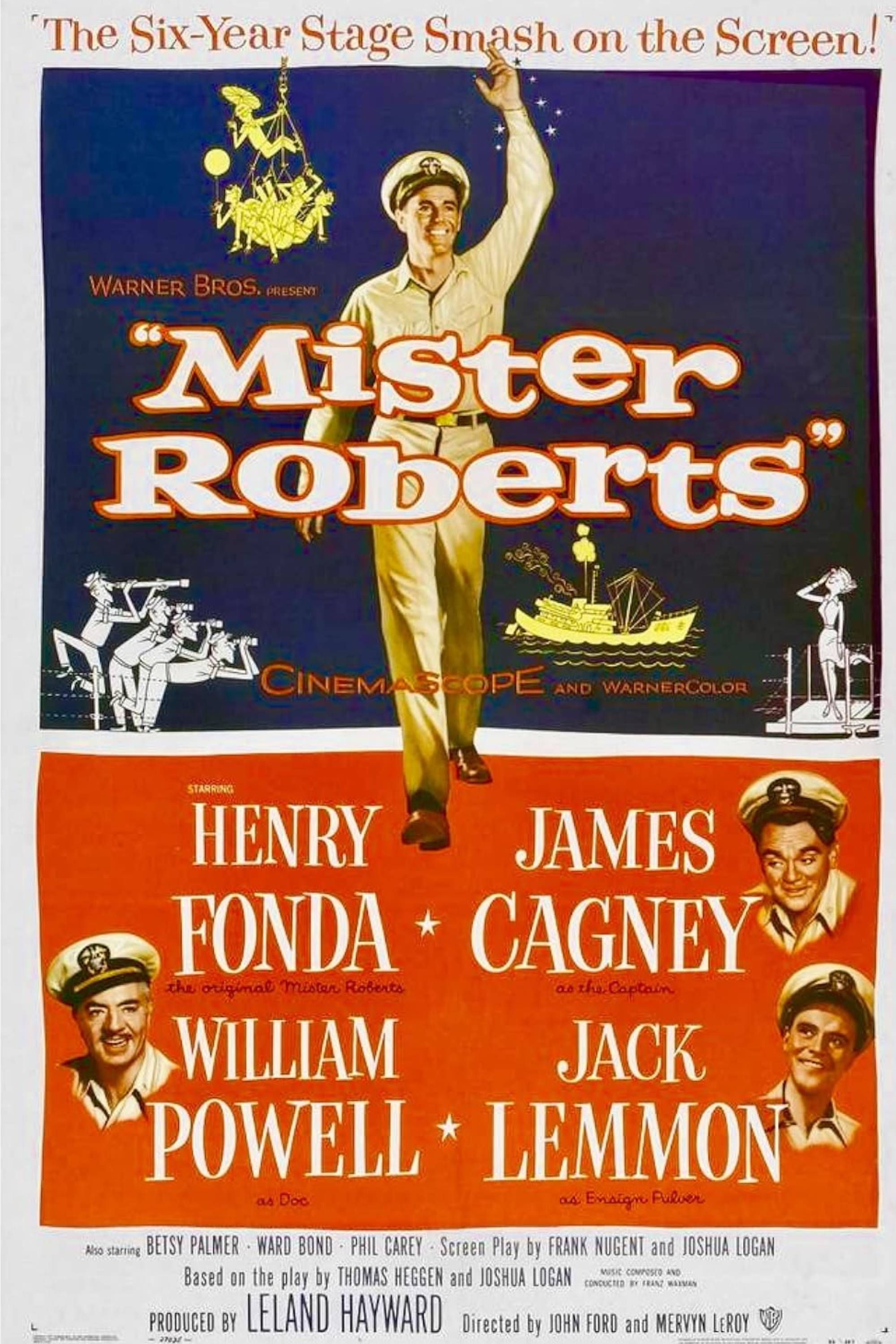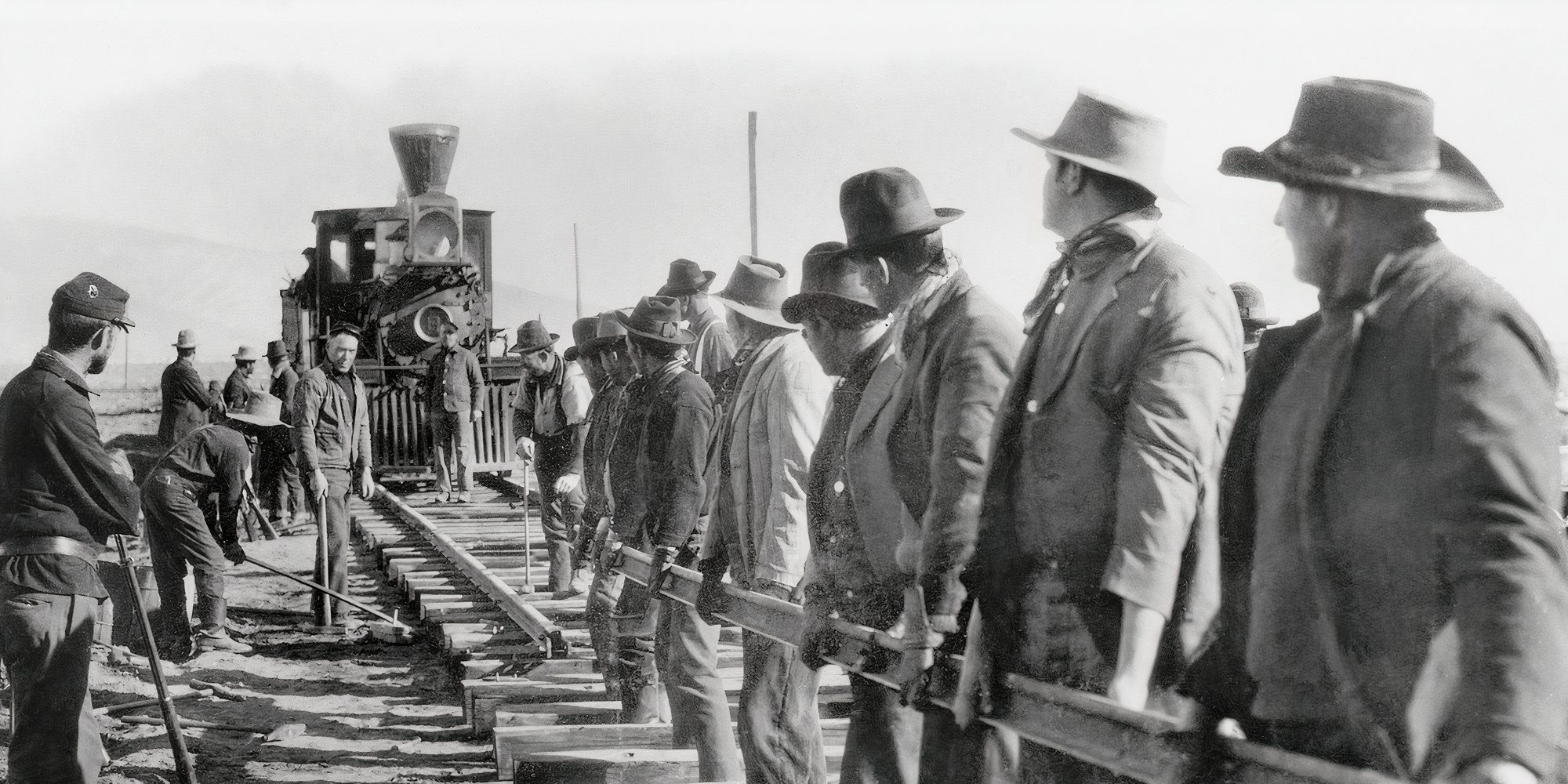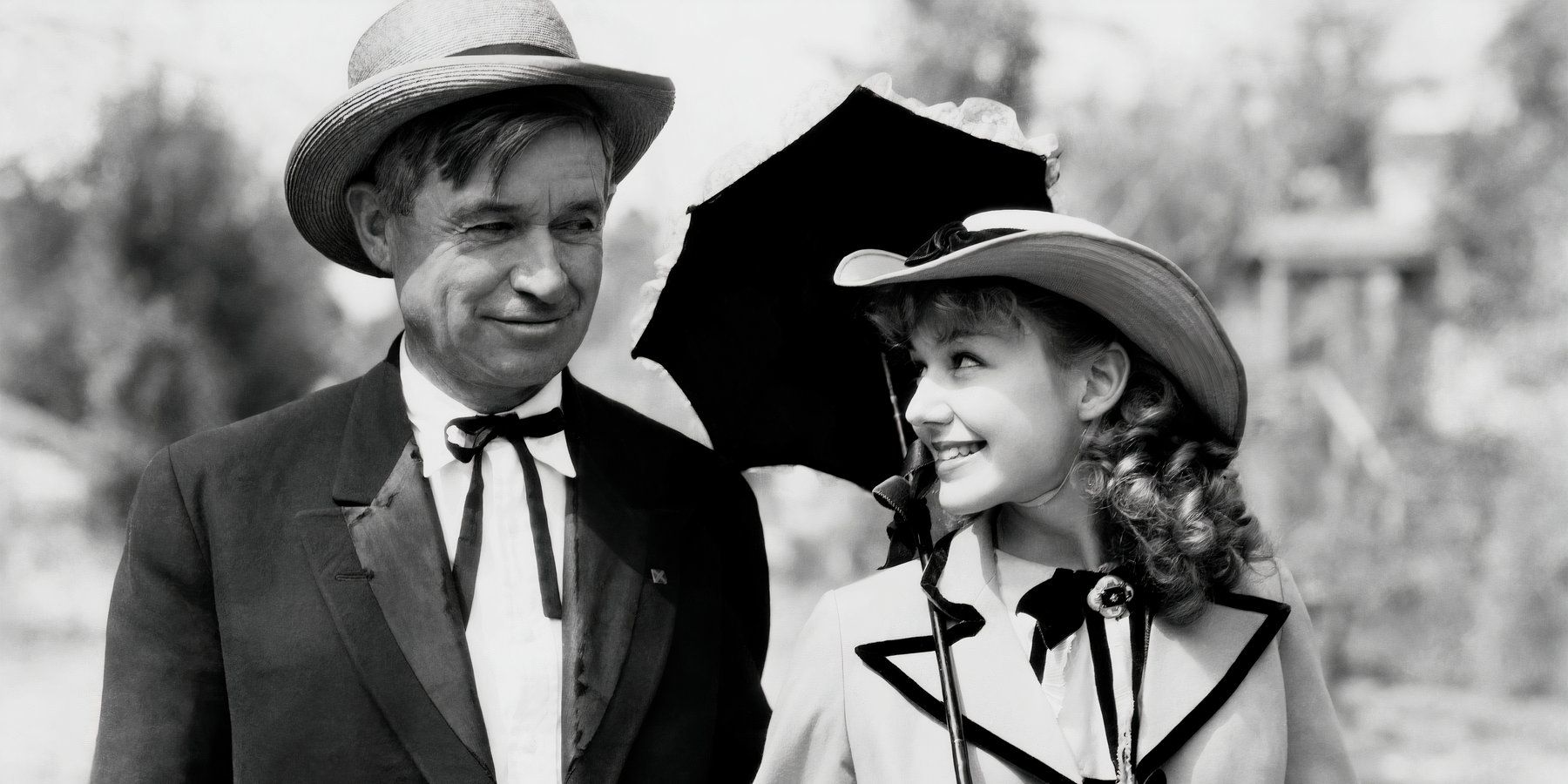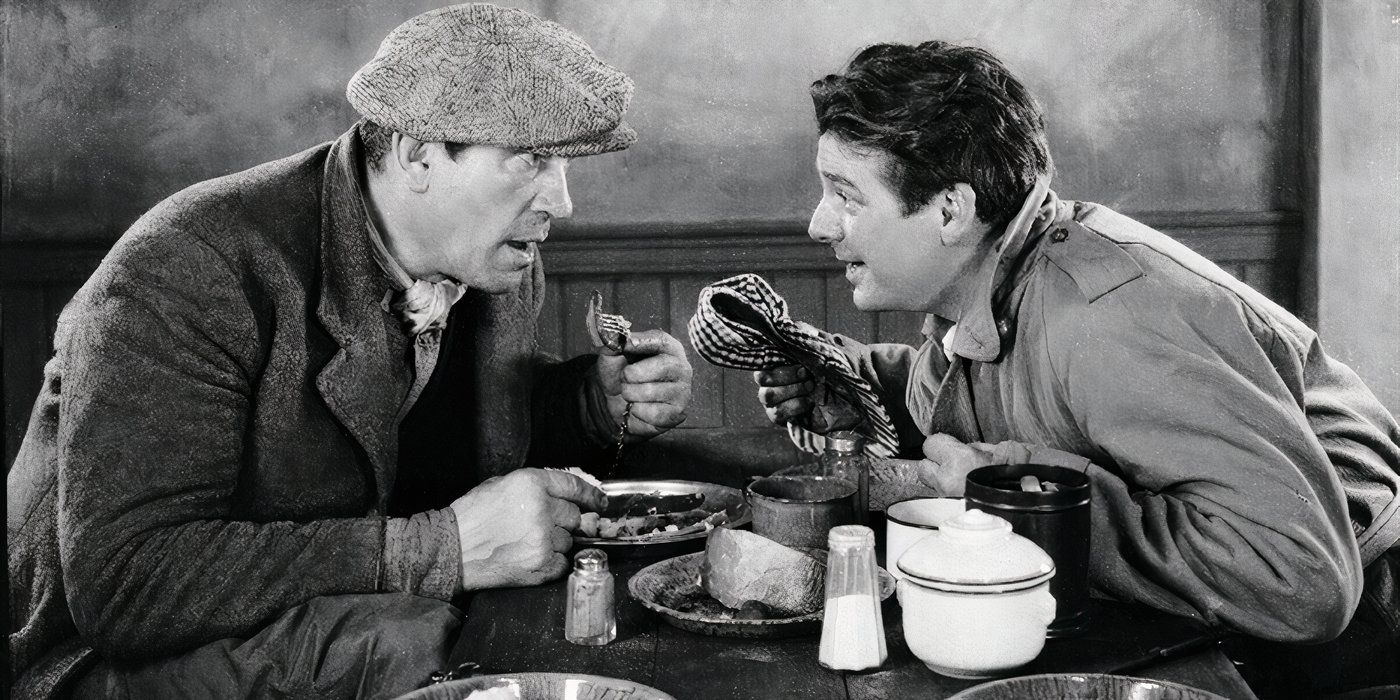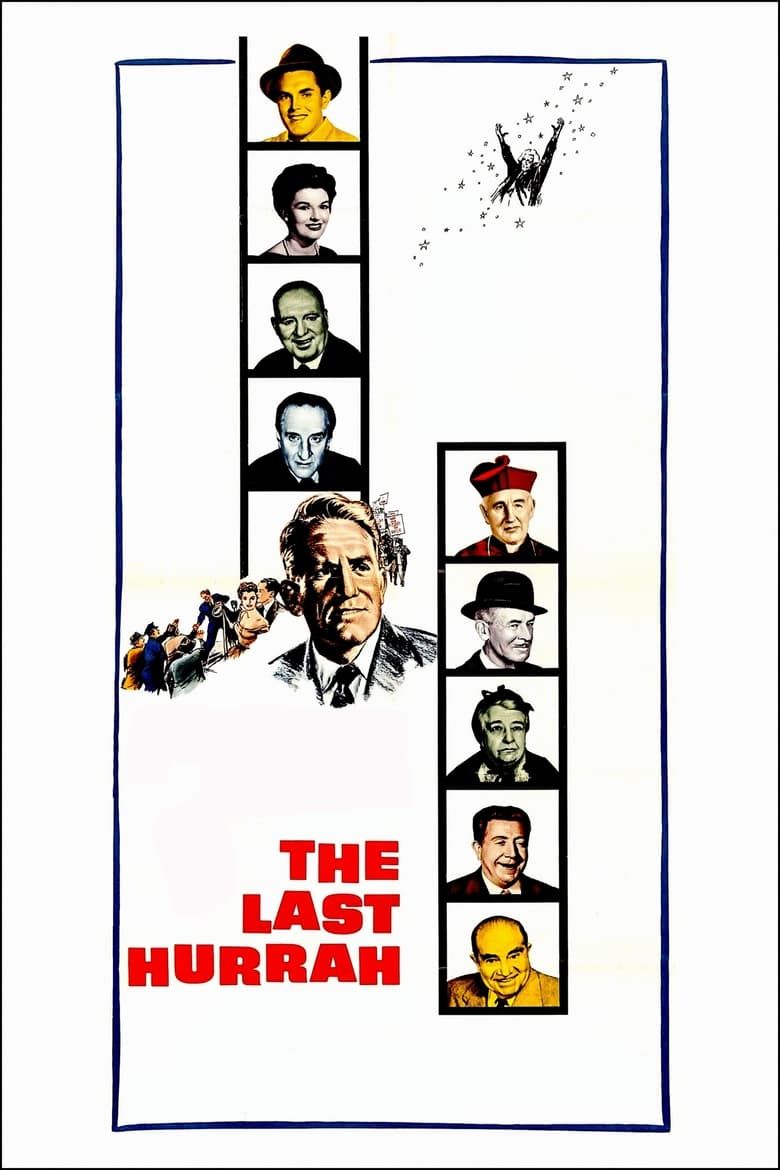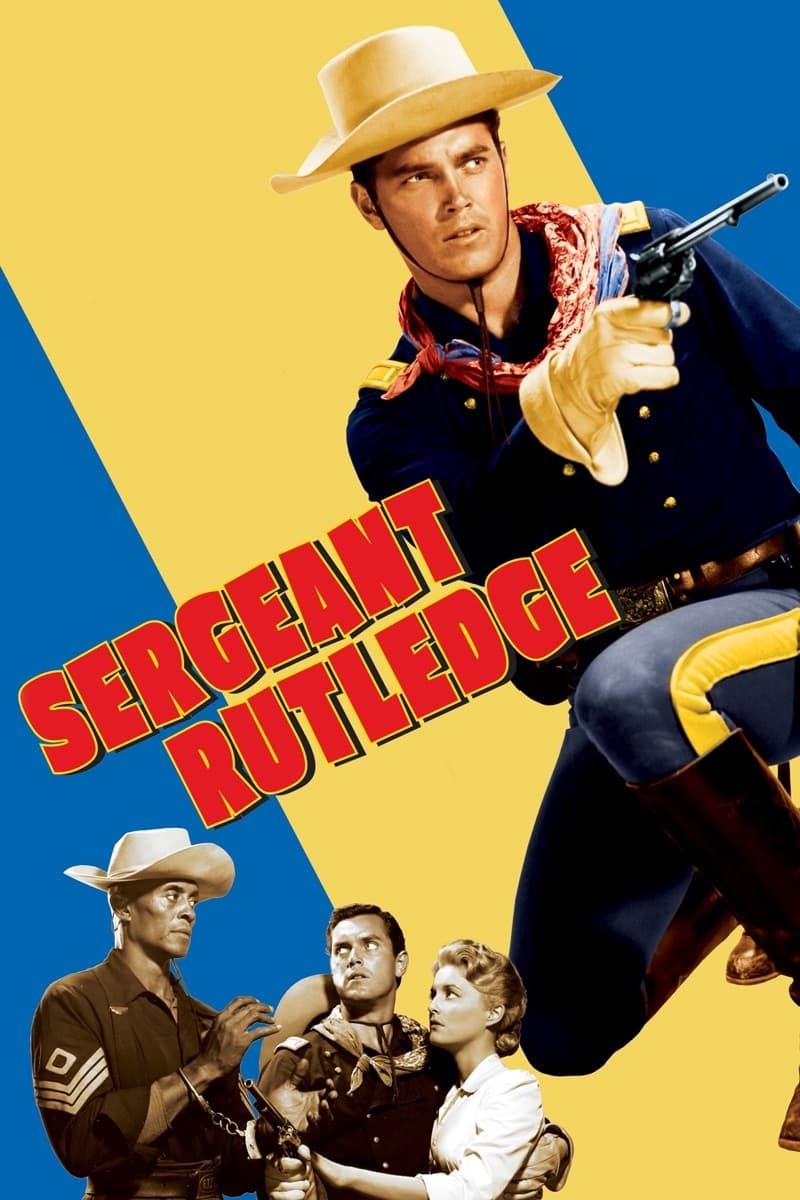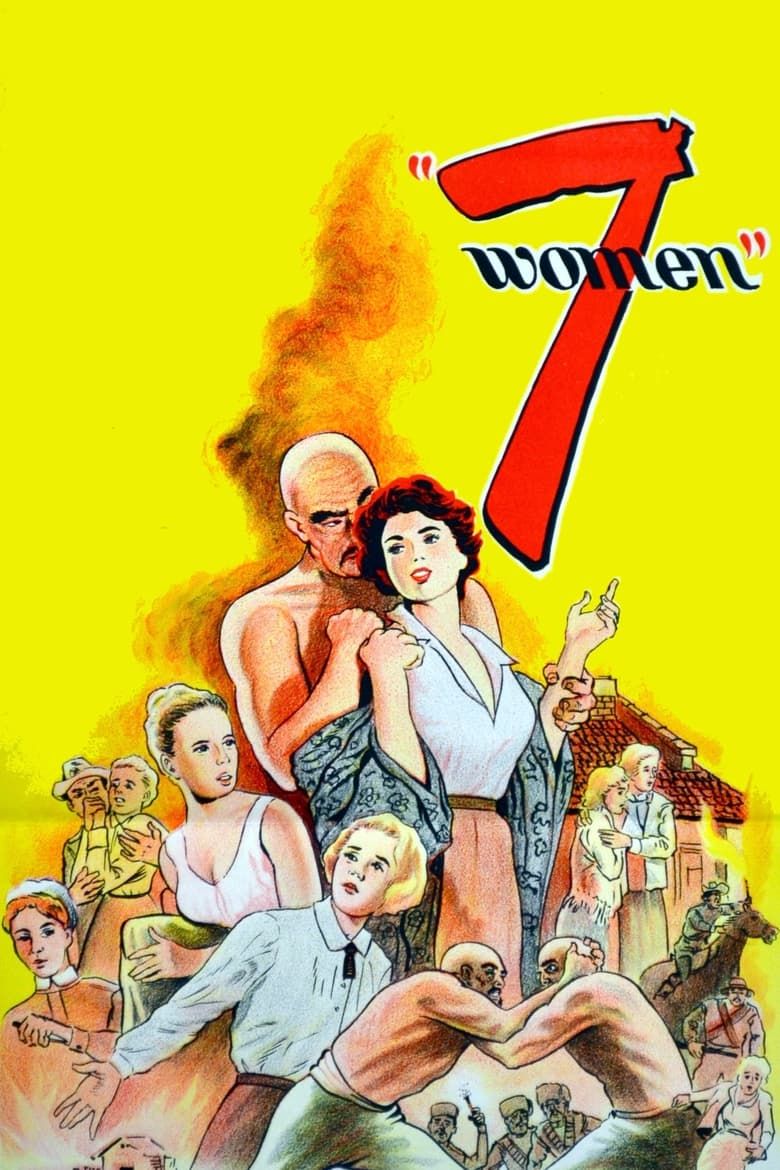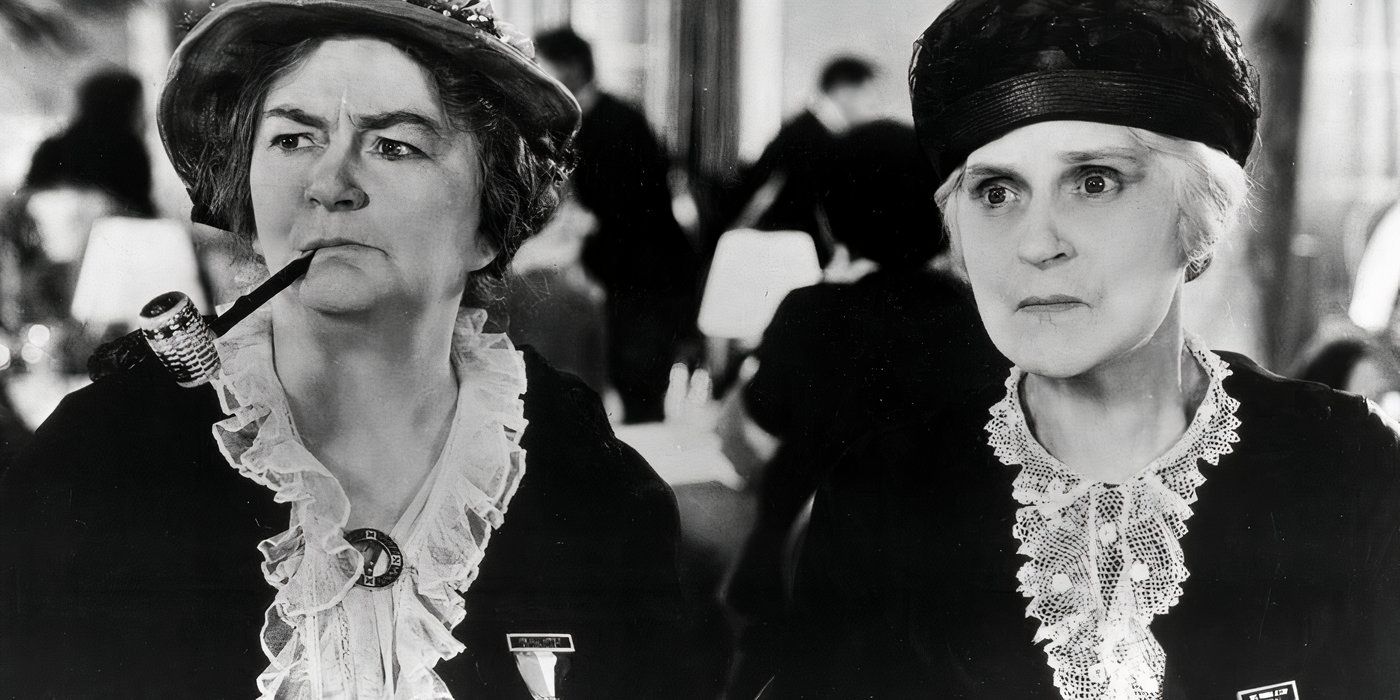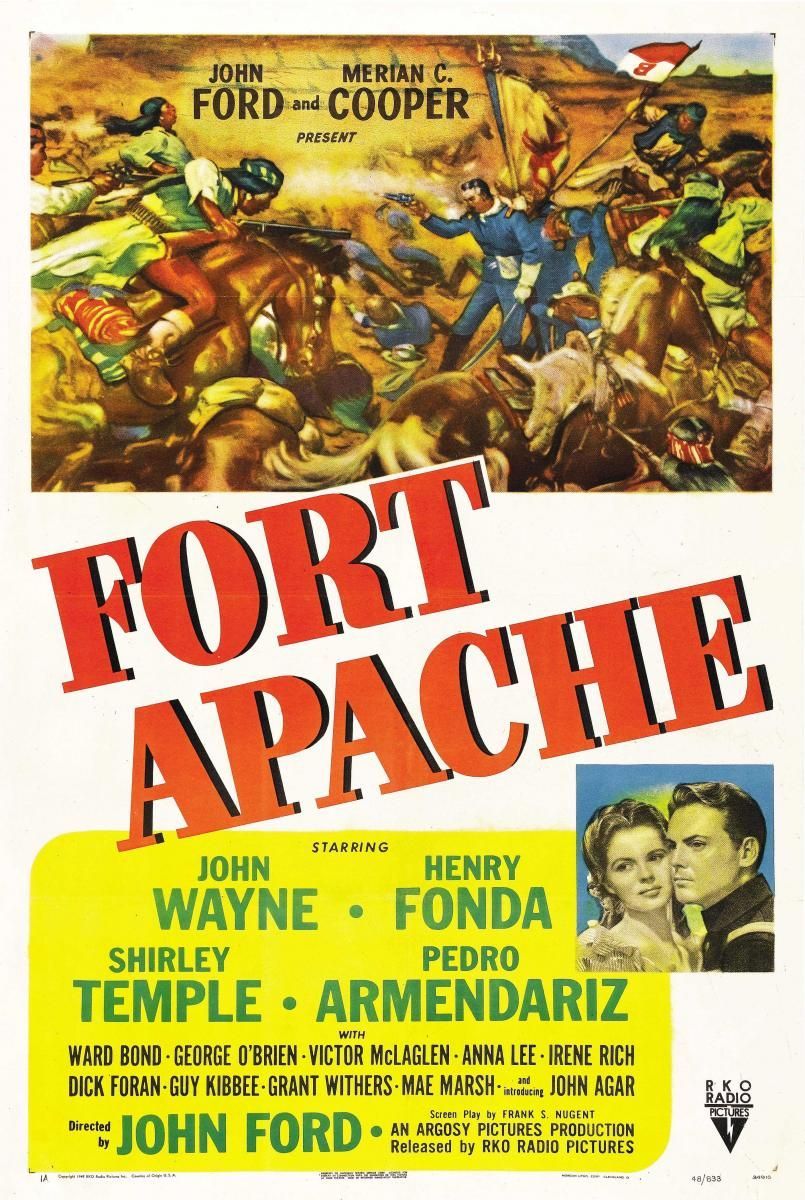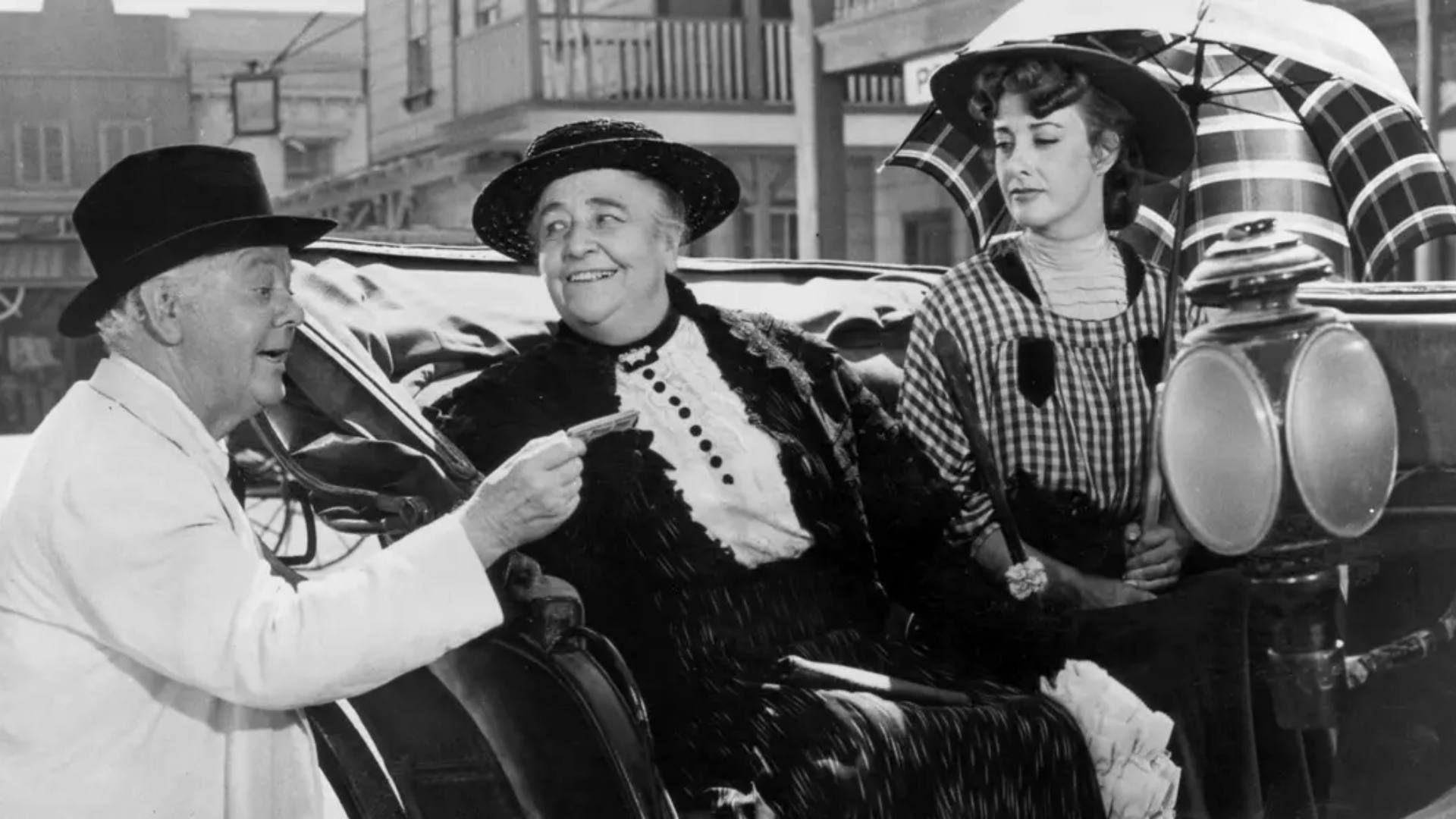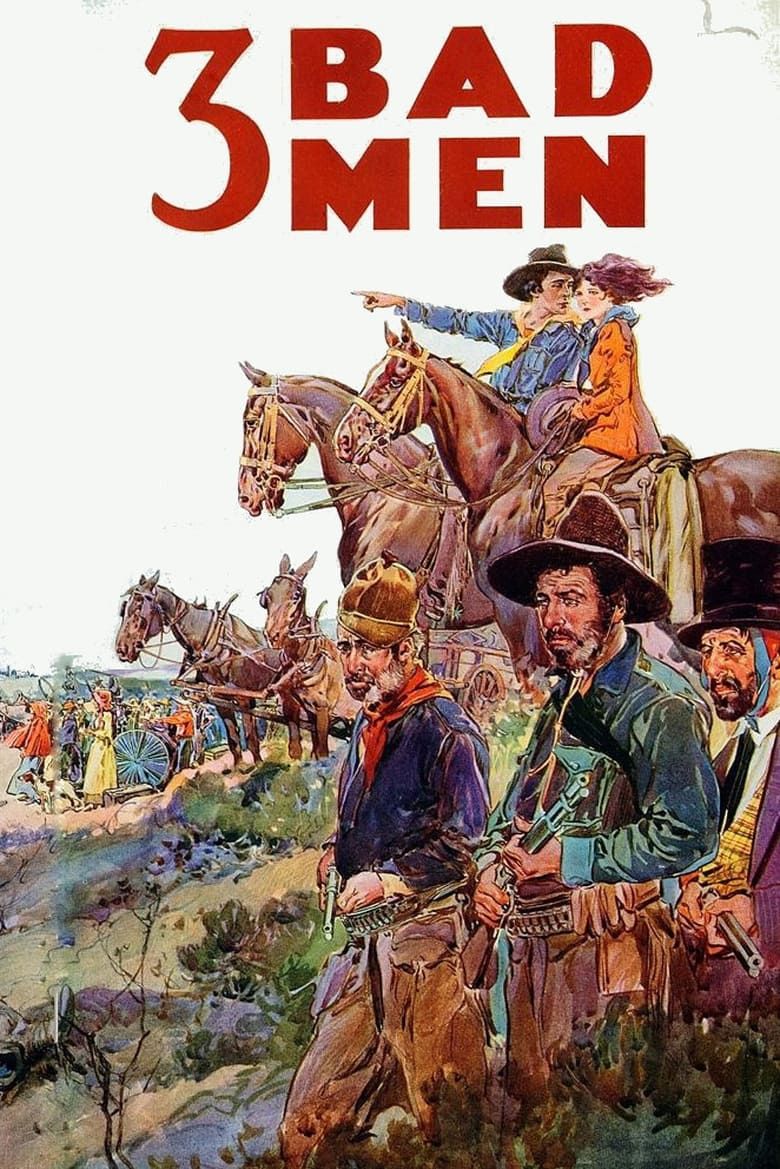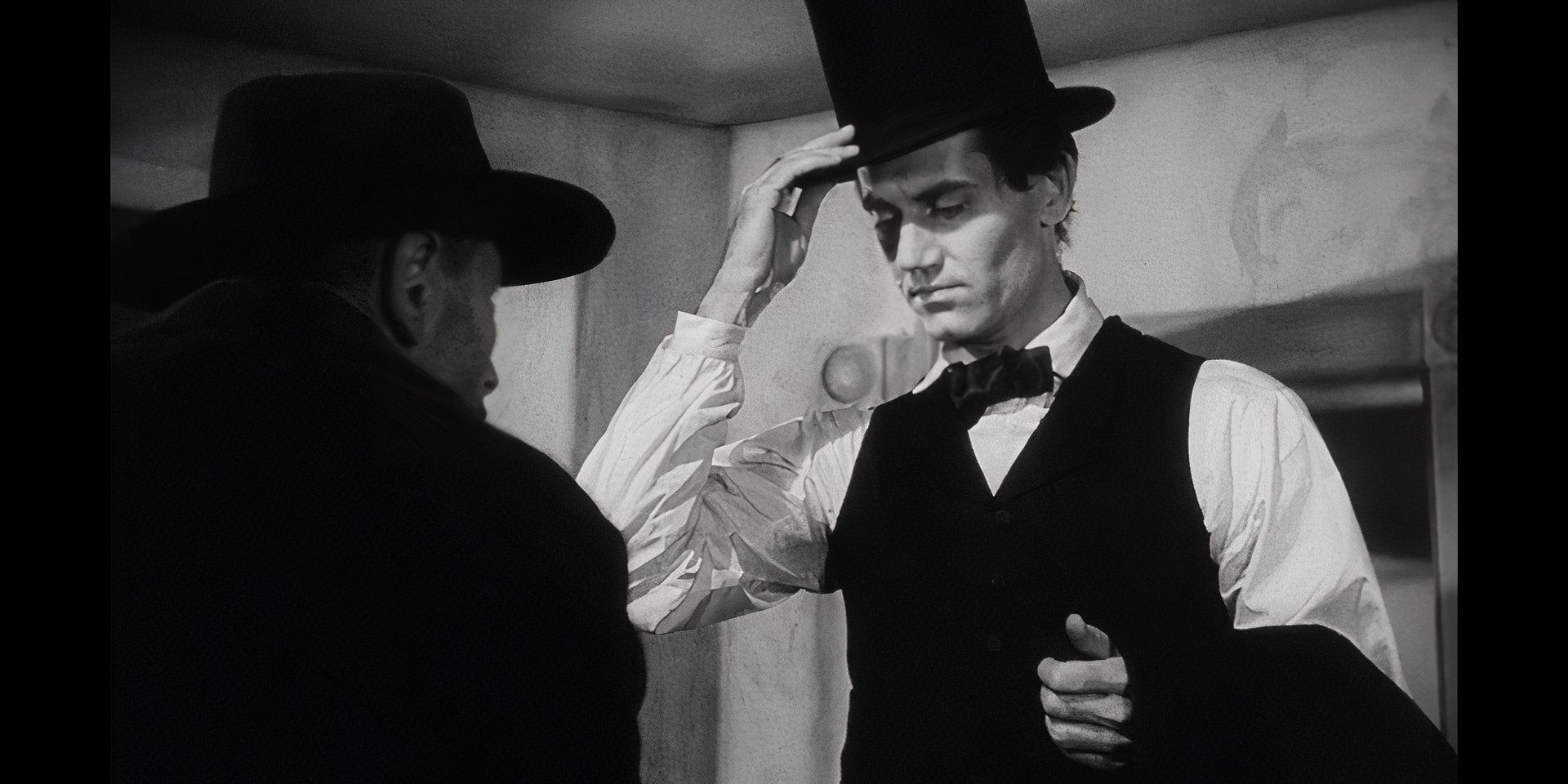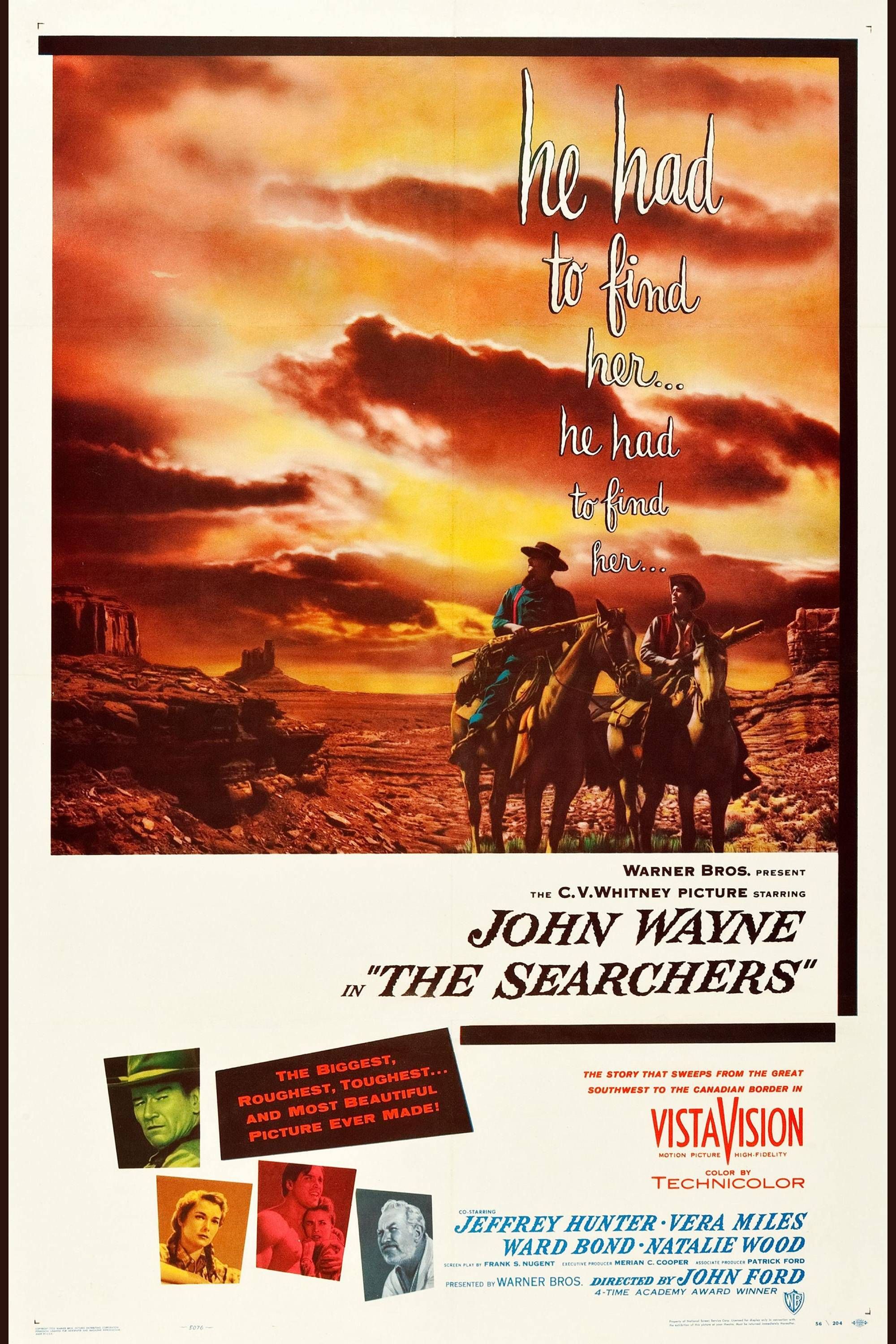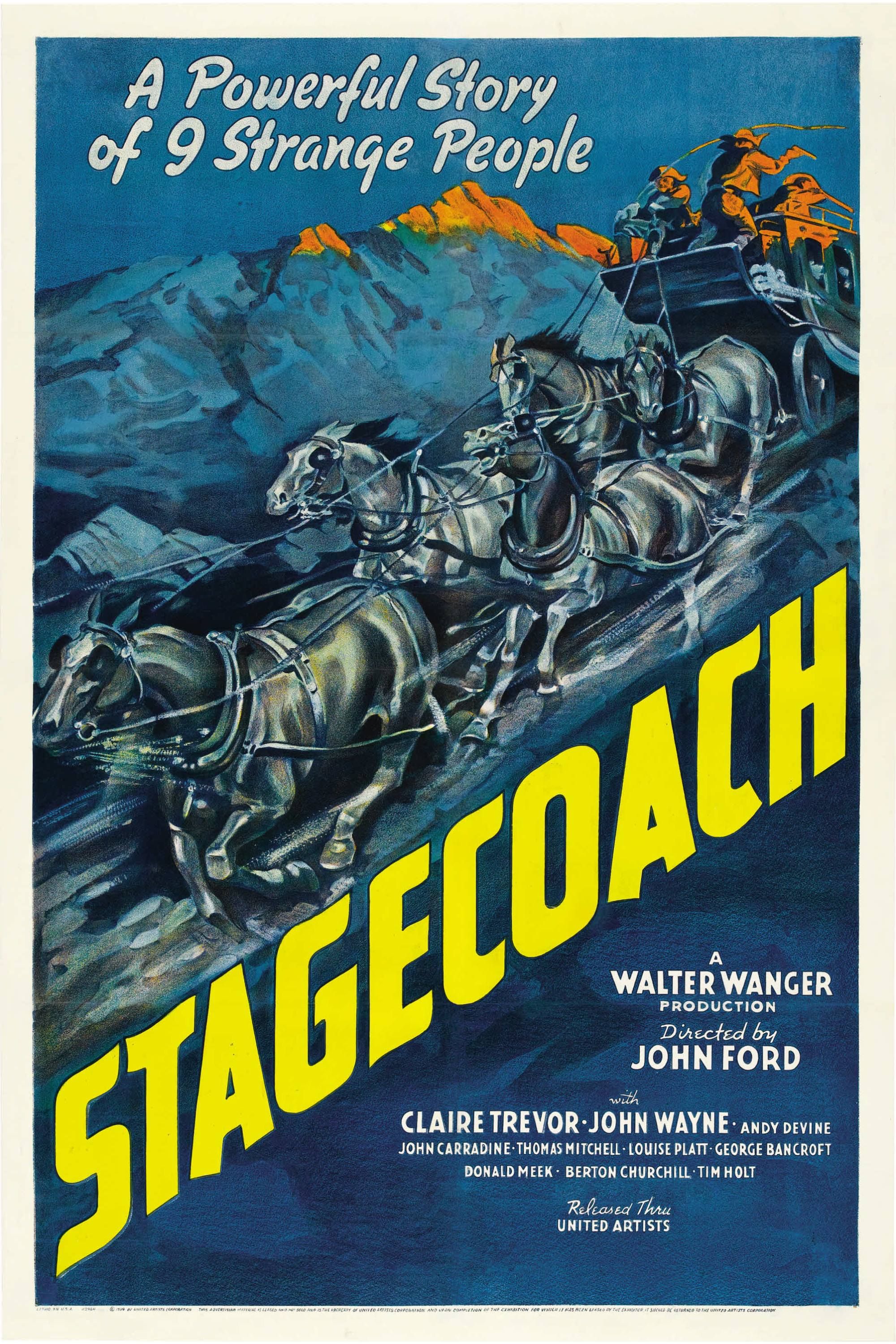John Ford is one of the greatest directors of the Golden Age of Hollywood, most famous for his Western films, for which Ford often collaborated with John Wayne. Ford is one of the most influential American directors, and he played a pioneering role in Hollywood’s transition from silent films to talkies. In a career spanning over 50 years, he made more than 100 films, and is often considered the first auteur in Hollywood.
Critically acclaimed, John Ford holds the record for most directing Oscars, having won four of them during his illustrious career. While his Westerns are his most celebrated films, his dramatic works are equally compelling; in fact, Western star and legendary director Clint Eastwood’s favorite John Ford movie isn’t, surprisingly, a Western. A true master of his craft, Ford dabbled in almost every genre, and was consistently successful at making good films in them all.
25 The Whole Town’s Talking (1935)
Letterboxd Rating: 3.6
Based on a comical premise of an ordinary man looking similar to a crooked criminal, The Whole Town’s Talking features Edward G. Robinson in two roles. The criminal steals a pass from the ordinary man who was given the pass to prevent prosecution, since the two’s resemblance would otherwise make such a mistake inevitable. While the premise is hilarious, the film is unfortunately tonally inconsistent because the crime drama side of things is much too somber to properly blend with the comedy, irrespective of how dark the latter is.
24 Mister Roberts (1955)
Letterboxd Rating: 3.6
Following the crew of a navy cargo ship, Mister Roberts tells the story of a frustrated lieutenant who’s desperately looking for a placement in an action-heavy location during the final days of World War II. The ship’s captain regularly clashes with him, and the work environment is made decidedly toxic due to the controlling strictness of this captain. The screenplay seems like the script for a play and the main performers all use the space around them and their abilities as actors to create a compelling dramatic narrative. However, the film might have benefited from leaning more into the humor.`
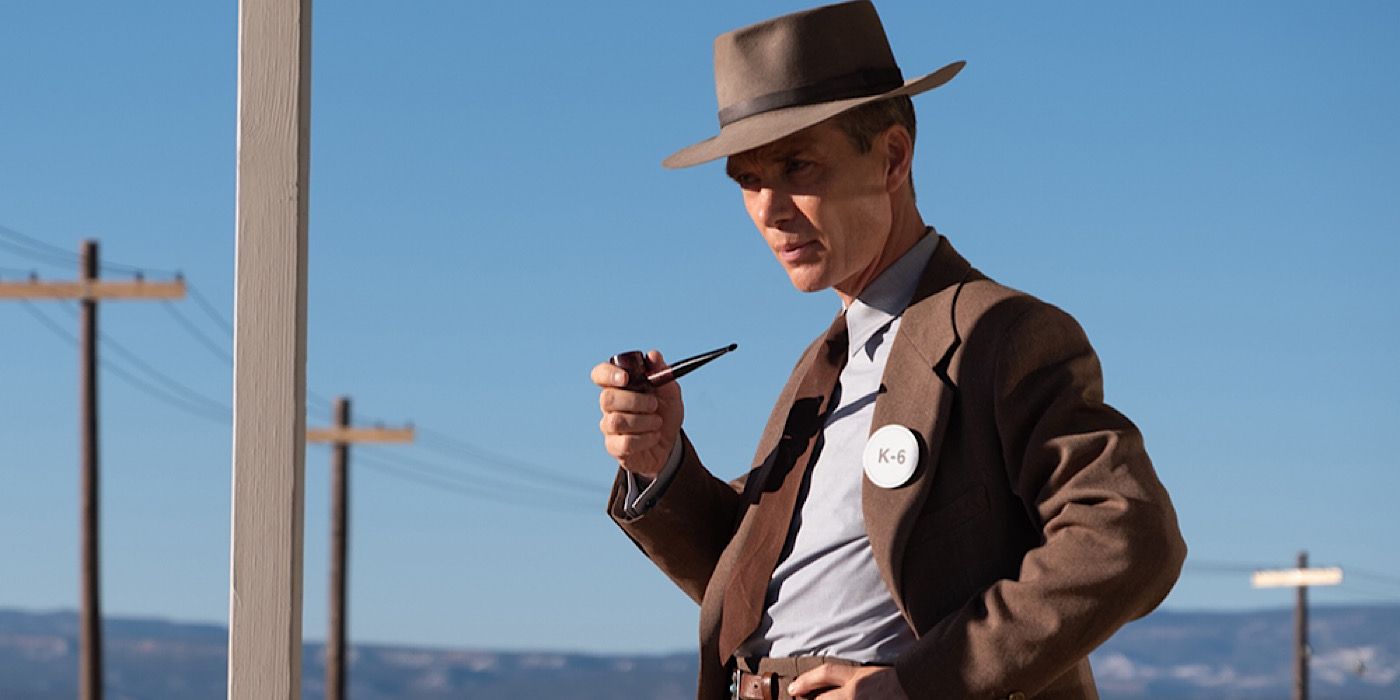
Related
10 World War 2 Movies Praised For Accuracy & Realism By Experts
Movies about World War II are often judged by their historical accuracy, and some are so authentic that they have been praised by historians.
23 She Wore a Yellow Ribbon (1949)
Letterboxd Rating: 3.6
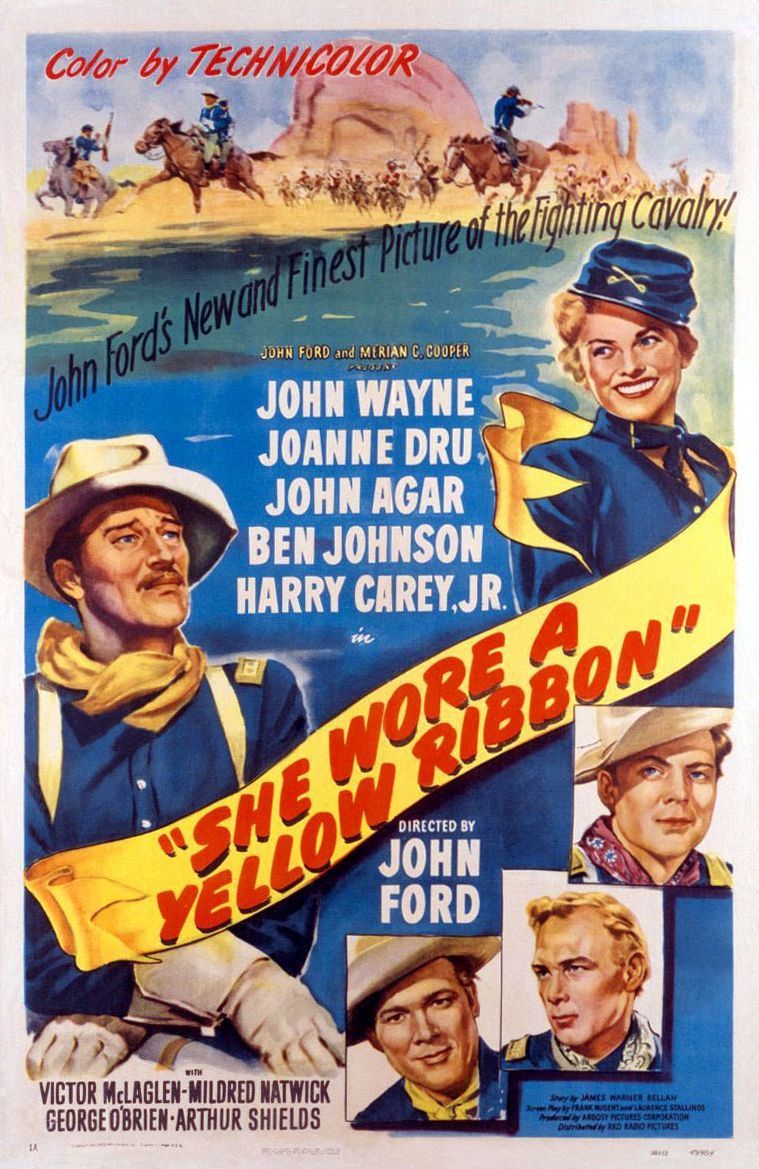
“She Wore a Yellow Ribbon” follows Captain Nathan Brittles as he embarks on his final mission before retirement. Tasked with preventing an Indian uprising in the aftermath of the Battle of the Little Bighorn, Brittles must lead his cavalry troop through dangerous territory. Alongside his men, he escorts Abby Allshard and her niece Olivia Dandridge to safety. As they face hostile encounters and treacherous landscapes, Brittles imparts wisdom and guidance to his younger officers, including Lieutenants Cohill and Pennell.
- Director
- John Ford
- Release Date
- October 22, 1949
- Writers
- James Warner Bellah , Frank S. Nugent , Laurence Stallings
- Cast
- John Wayne , Joanne Dru , John Agar , Ben Johnson , Harry Carey Jr. , Victor McLaglen , Mildred Natwick , George O’Brien , Arthur Shields , Michael Dugan
- Runtime
- 104 Minutes
John Wayne plays a cavalry veteran who’s days away from retirement in She Wore a Yellow Ribbon. Set in a picturesque location that’s filmed in a beautifully vibrant color palette, the film follows Wayne’s character as he attempts to quell a rebellion and safely escort two across a perilous land on his final day before retirement. The racist tones in the depiction of the “Indians”, that is to say, the Native Americans, may have been acceptable as representation when She Wore a Yellow Ribbon was made, but it makes for an uncomfortable viewing experience today.
22 The Long Voyage Home (1940)
Letterboxd Rating: 3.6
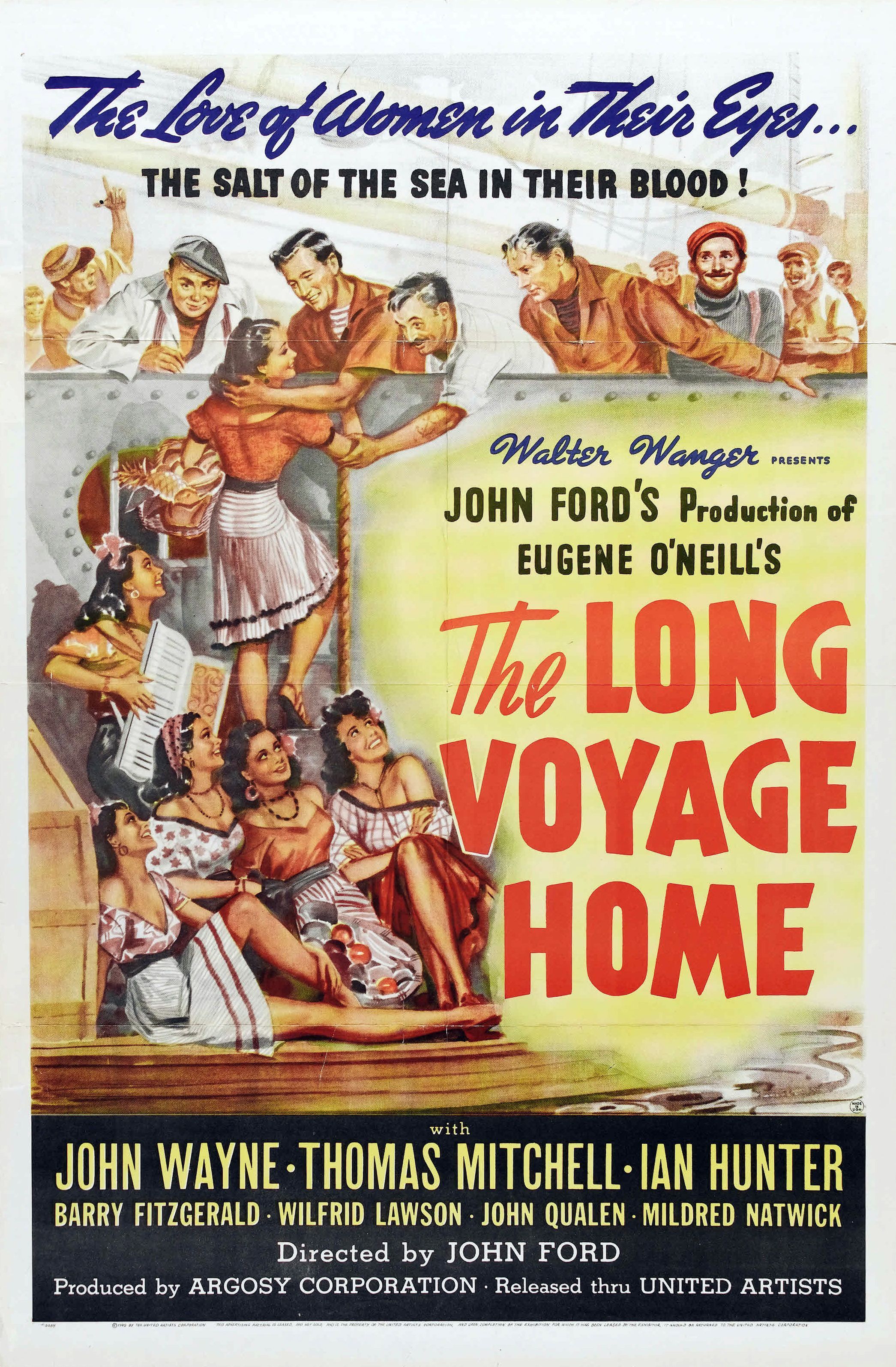
The Long Voyage Home, released in 1940, is a film that follows the crew of the merchant ship Glencairn as they navigate a perilous transatlantic journey during World War II. The narrative is adapted from four Eugene O’Neill one-act plays, capturing the intense experiences of seafaring life.
- Director
- John Ford
- Release Date
- November 22, 1940
- Writers
- Eugene O’Neill , Dudley Nichols
- Cast
- John Wayne , Thomas Mitchell , Ian Hunter , Ward Bond , Barry Fitzgerald , Wilfrid Lawson , John Qualen , Mildred Natwick
- Runtime
- 105 Minutes
The Long Voyage Home chronicles the adventures of a motley crew on board a British tramp streamer as they attempt to cross the Atlantic during the Second World War. A gritty drama, it explores how the hardships of being at sea for long periods of time can disillusion even the most foolhardy, heavy-drinking group of people. John Wayne’s Swedish accent is a mistake that could’ve been avoided, but despite him being underutilized, and a little unevenness in the screenplay’s mix of hard-hitting dramatic turns and comic relief moments of optimism, it’s critically acclaimed and received six Academy Award nominations.
21 The Iron Horse (1924)
Letterboxd Rating: 3.7
A silent era Western of epic proportions, The Iron Horse tells the story of a young prospector who sets out to avenge his father’s murder and bring to life his deceased father’s dream of a transcontinental railroad across the plains of the United States of America. The story explores the concept of workers’ rights, and presents a villain in a capitalist who refuses to optimize the plans for the railroad to increase his profits. The Iron Horse is Ford’s first narrative epic and the polished versions of the ideas he explores in it can be found in his later Westerns.
20 Steamboat Round the Bend (1935)
Letterboxd Rating: 3.7
Practically a romcom, although the genre hadn’t really yet taken shape back when it was released, Steamboat Round the Bend follows a grifter as he attempts to win a steamboat race and hunts down a witness who can protect his nephew from unfair execution by the law. The charming dates where the central couple of the film get to work optimizing the steamboat for the race and also creating a wax museum on board set up the climactic race, which is a treatise on the harms of conforming to regressive social norms.
19 The Informer (1935)
Letterboxd Rating: 3.7
The first film to win John Ford the Best Director Academy Award, The Informer tells the story of a cynical and dysfunctional man who lives in Dublin. He betrays his best friend’s trust for the promise of a better tomorrow where he might live out the American dream, away from his drab existence in Ireland. The film is a stylistic journey through a man’s psychosis that’s unfortunately not very well-placed, with the time period and the world around him barely fleshed out. However, that makes the journey even more emotional, and that ultimately works in the film’s favor.
18 Four Sons (1928)
Letterboxd Rating: 3.7
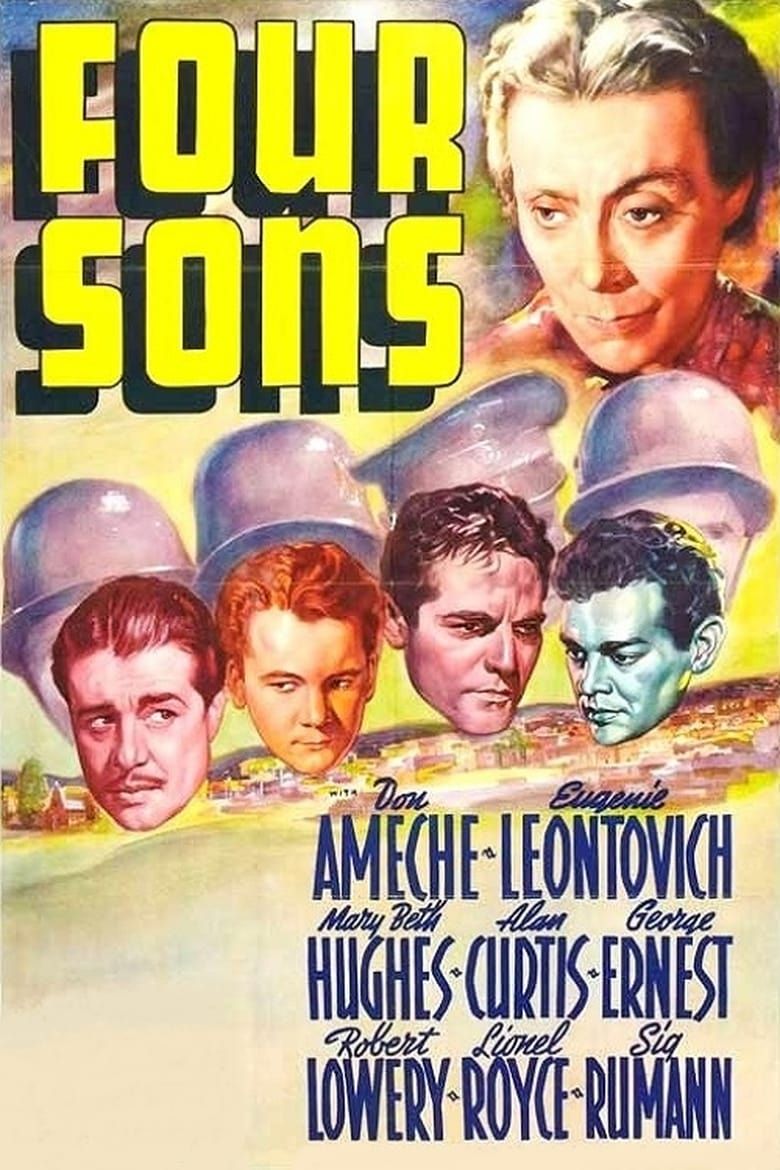
Four Sons is a 1940 film directed by Archie Mayo, starring Don Ameche and Eugenie Leontovich. It is a remake of the 1928 silent film, exploring themes of family and loyalty. Set against a historical backdrop, the narrative follows the lives of four brothers during challenging times.
- Director
- Archie Mayo
- Release Date
- June 14, 1940
- Writers
- John Howard Lawson
- Cast
- Don Ameche , Eugenie Leontovich , Mary Beth Hughes , Alan Curtis , George Ernest , Robert Lowery , Lionel Royce , Sig Ruman , Ludwig Stössel , Christian Rub , Torben Meyer
- Runtime
- 89 minutes
A sentimental drama about the life of a woman and her four sons set in the First World War, Four Sons is one of the earliest films in history to involve the use of sound. It’s not exactly a talkie because there’s no audible dialogue played back for audiences, just a score in the background. There’s a bit of propaganda as America is portrayed as idyllic in opposition to Germany, but the film’s control of the narrative elements to focus on human tenderness even in the face of war makes it a heartening melodrama.
17 The Last Hurrah (1958)
Letterboxd Rating: 3.7
A nuanced political drama about the role played by televised media in politics, The Last Hurrah explores how politicians not used to the television and not adept at manipulating the audiovisual medium for their needs, started falling behind when televisions entered everyday life. It’s an eternally relevant drama because the manipulation of media by politicians for personal gain is an ever-happening phenomenon. The only flaw of The Last Hurrah is perhaps that there are so many unresolved subplots.
16 Sergeant Rutledge (1960)
Letterboxd rating: 3.8
A harrowing courtroom drama about an African American military man accused of raping a white woman, Sergeant Rutledge is a scathing look at the inherent racism in the justice system and in the American populace. It provides the black man with the narrative agency and thus actively takes an anti-racism stance. However, that stance is undermined by its treatment of the native American characters in the film. The Apaches are present, but their treatment as characters, both within the film and in the way the film deals with them, smacks of racist prejudice as their victimhood is never acknowledged.
15 The Quiet Man (1952)
Letterboxd Rating: 3.8
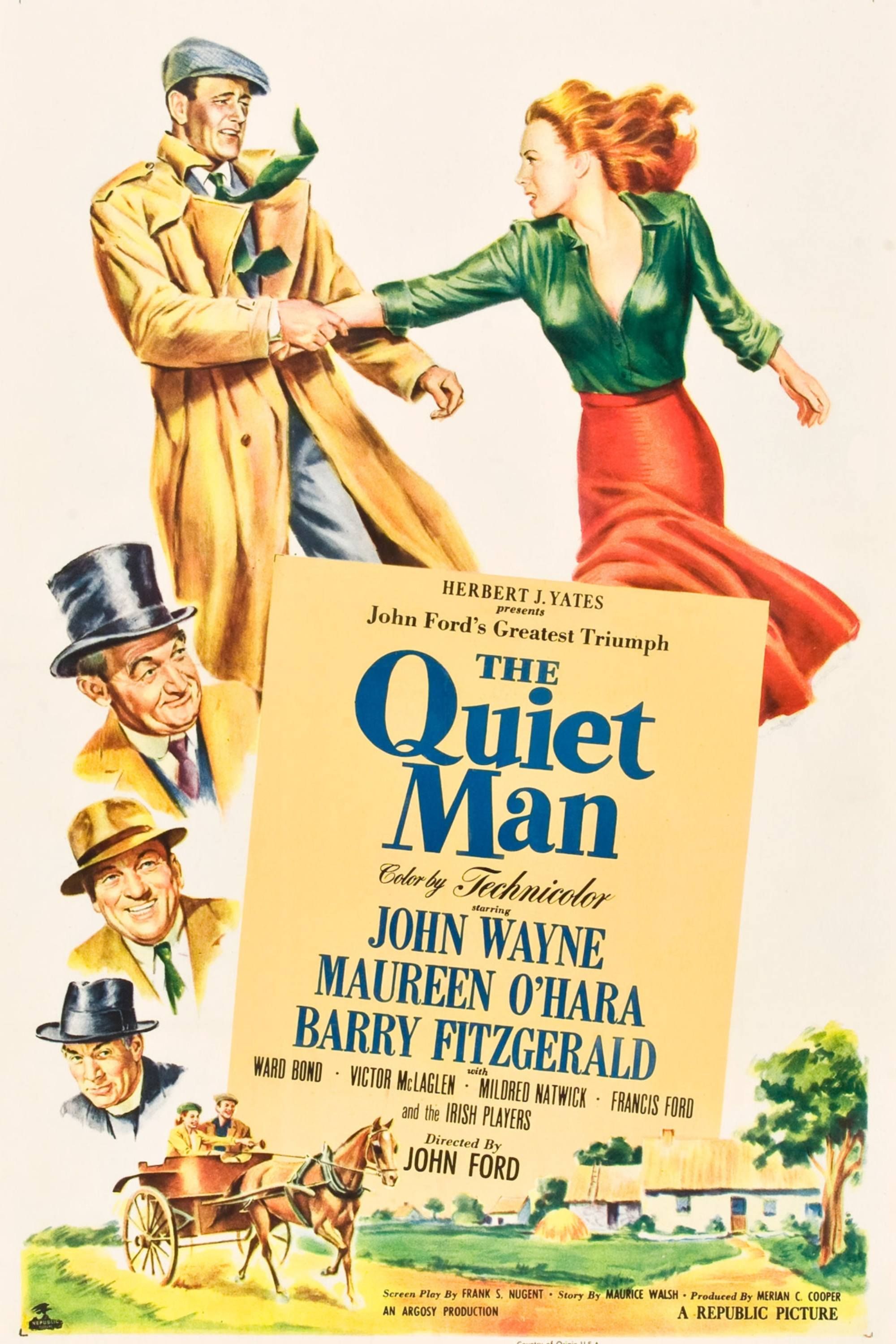
The Quiet Man is a 1952 romantic drama directed by John Ford and starring John Wayne as a retired boxer who returns to his Irish roots. Set in the idyllic countryside, the film follows his attempts to reclaim his family’s homestead while pursuing a romance with a spirited local woman played by Maureen O’Hara. Known for its vivid scenery and cultural depiction, the film explores themes of identity and tradition.
- Director
- John Ford
- Release Date
- August 21, 1952
- Writers
- Frank S. Nugent , John Ford , Maurice Walsh
- Cast
- John Wayne , Maureen O’Hara , Victor McLaglen , Barry Fitzgerald , Ward Bond , Mildred Natwick , Francis Ford
- Runtime
- 129 Minutes
John Ford won his fourth and final Best Director Academy Award for The Quiet Man, which is a romantic drama set in Ireland. The visual presentation of the location is mesmerizing, and the idiosyncratic drama has ample comic relief to make it an entertaining watch. However, the central focus of the romantic arc is a little disconcerting. John Wayne’s character quite often simply holds and grabs Maureen O’Hara’s character and just physically handles her a lot, and while it’s played as affectionate, it feels a little dated through today’s lens of agency.
14 7 Women (1966)
Letterboxd Rating: 3.8
Ford’s final film 7 Women tells the story of the residents of an all-woman Christian mission in rural China. They’re preyed on by Mongolians, and it is up to some of the women to secure safety for the residents by standing up to the perpetrators. The gender politics of this film are kind of progressive, and it’s definitely refreshing for a film from this time by such a celebrated director to adopt such a feminist lens for storytelling. However, the progressive potential is undermined by the racist stereotyping of the thieves and the locals in the film.
13 Pilgrimage (1933)
Letterboxd Rating: 3.8
A war drama that’s also a romance film, Pilgrimage tells the story of a woman who forces her son to enlist in the army as a way of ensuring he doesn’t get married. The consequences of this decision plague her for the rest of her life, and most of the film is focused on her journey of finding forgiveness and catharsis as she tries to find ways to live with herself.

Related
John Ford Made Oscars History 71 Years Ago & His Record Won’t Be Broken Anytime Soon
An Academy Award record was broken over seven decades ago by filmmaker John Ford, a record that will likely not be broken any time soon.
12 Fort Apache (1948)
Letterboxd rating: 3.8
Decidedly critical of the cavalry, Fort Apache is the first film in Ford’s famed Cavalry Trilogy. It’s an expansive narrative about the self-destructiveness of being obsessed with military titles to the point of becoming blinded by ambition. Fort Apache is an indictment of the military structure and the American people’s reverence for it, often to their own detriment. There is a significant amount of racial stereotyping in the characterization of the native characters, but at least the film gives them some narrative agency and definitely focuses on the American government’s unfair treatment of them.
11 The Sun Shines Bright (1953)
Letterboxd Rating: 3.8
A political satire about the importance of empathy and decency in sustaining a community, The Sun Shines Bright follows a politician whose primary goal isn’t to get votes for himself. He’s most focused on being vigilant in his efforts to counter racism and sexism in his community. An ever-relevant film, The Sun Shines Bright, offers a perspective on affirmative action, showing how the man’s intentional interventions make the community a utopian safe haven for those the world seemed particularly dangerous when the film began.
10 3 Bad Men (1926)
Letterboxd Rating: 3.8
One of his later silent films, Ford’s 3 Bad Men weaves an extensive narrative of adventure. After a girl’s father is killed, the titular 3 bad men, who are outlaws in the eyes of the law, band together to help her. They provide her with protection and take her with them to the town of Custer, where they are headed in search of gold. Their story provides an analysis of the American dream, and depicts how it sometimes provides people with the right impetus they need to change who they are and improve their lives.
9 Young Mr. Lincoln (1939)
Letterboxd Rating: 3.9
A fictionalized account of the earlier days of the life of Abraham Lincoln, long before he became the President of the United States of America, Young Mr. Lincoln tells the story of his fascination with the law and how he successfully became a lawyer. Most of the film frames him in the center and draws attention to the mannerisms and the oration of this youthful and skilled lawyer as he awkwardly walks around the courtroom, defending innocent people.
8 Wagon Master (1950)
Letterboxd Rating: 3.9
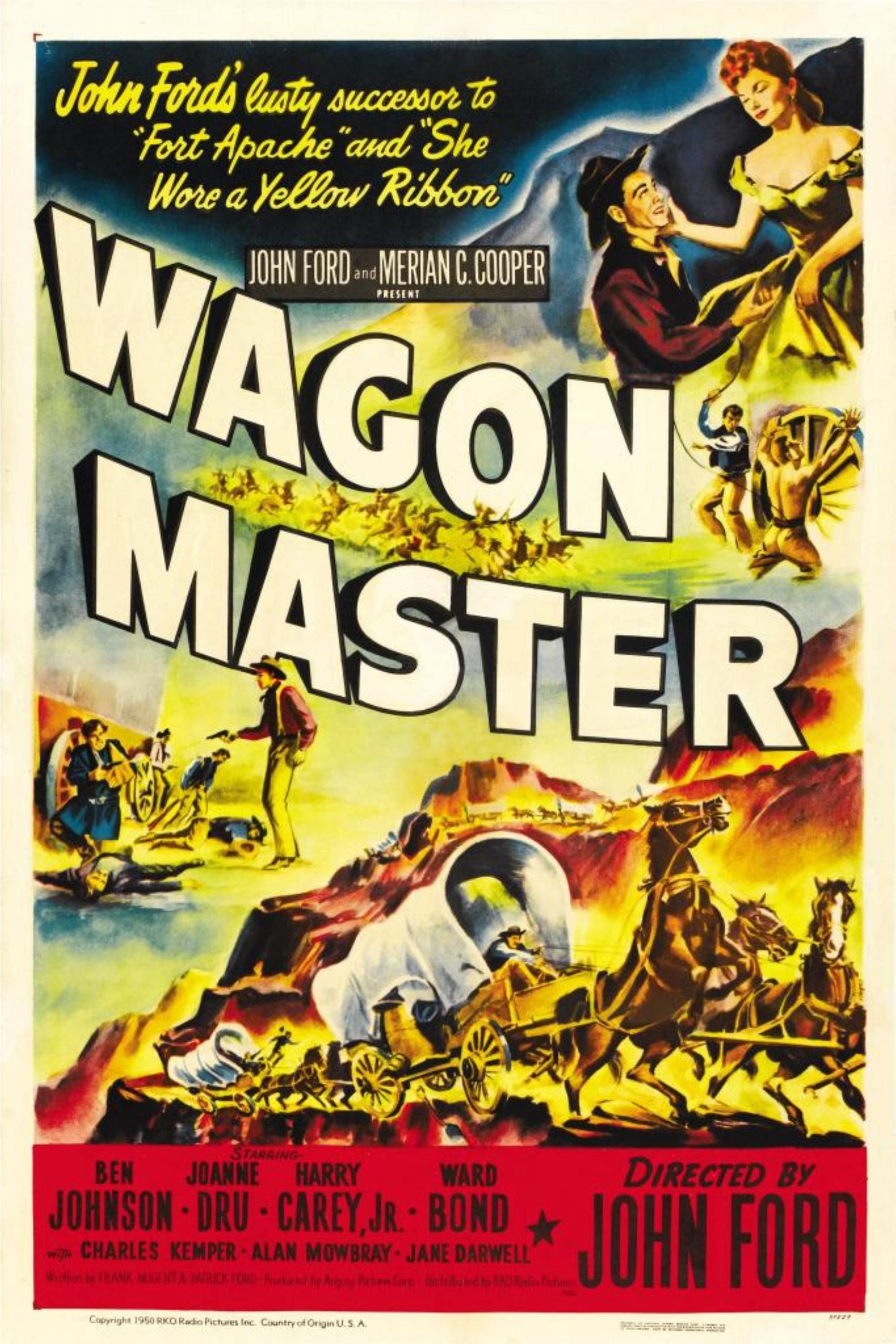
Wagon Master is a Western film directed by John Ford, featuring Ben Johnson and Harry Carey Jr. The storyline follows two itinerant horse traders who join a Mormon wagon train heading to Utah’s San Juan Valley. The journey is fraught with hardships and encounters with outlaws, making it both perilous and adventurous. Set against the expansive backdrop of the American frontier, the film emphasizes camaraderie and the quest for a new beginning.
- Director
- John Ford
- Release Date
- April 22, 1950
- Writers
- John Ford , Patrick Ford , Frank S. Nugent
- Cast
- Ben Johnson , Joanne Dru , Harry Carey , jr. , Ward Bond , Charles Kemper , Alan Mowbray , Jane Darwell , Ruth Clifford
- Runtime
- 86 Minutes
While it was met with neutral responses upon its release, in the years since, Wagon Master has come to be celebrated as a masterpiece by John Ford. It chronicles the adventures of two young horse traders who are escorting a Mormon wagon train to San Juan Valley. They encounter all sorts of peril on the way, and Ford expertly films the frontiers in all their glory, painting a picture of desolation and survival, masterfully crafting a Western for the ages.
7 The Searchers (1956)
Letterboxd rating: 3.9
One of the most celebrated Western films of all time, The Searchers features John Wayne as a civil war vet who returns home after years of service with gold of unknown origin. On a false alarm, he’s led away from his brother’s home and returns to find that the house is burning and his niece has been abducted by the Comanche. The film is unfortunately plagued by racist and sexist tones and stereotypes which, while a product of the time, make for a badly dated viewing experience today, especially considering its popularity.
6 Stagecoach (1939)
Letterboxd rating: 4.0
Another highly influential Western starring John Wayne and directed by John Ford, Stagecoach features a chase sequence that has inspired action scenes for years to come. Led by the Ringo kid, a ragtag group of travelers on board a stagecoach prepare to face Geronimo as rumors travel to them warning them of an impending attack by the Native Americans. Along with the themes of bravery and solidarity, the film explores the role of classism in society as everyone in the coach represents a different stage in the hierarchy of the working class.



